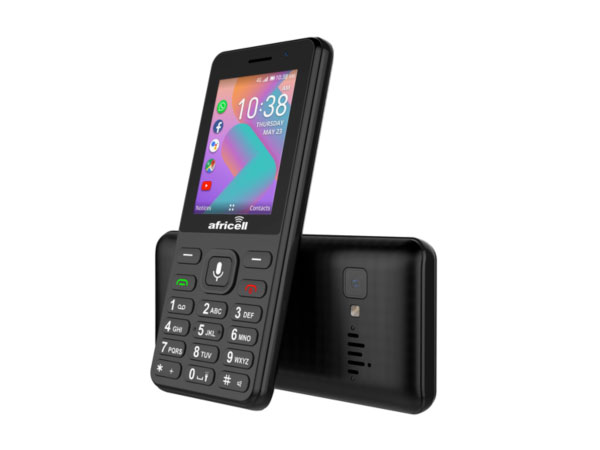
African telecommunications operator, Africell announced the launch of their first 3G smart feature phone, Afriphone, powered by KaiOS. The newly released device will be the first KaiOS-powered device in Gambia and Sierra Leone, and will also be made available in Uganda and the Democratic Republic of Congo.
Afriphone is said to have been designed with affordability and accessibility for customers in mind, features 3G connectivity and access to essential and popular apps like WhatsApp, the Google Assistant, Facebook, YouTube, and Google Maps.
Additionally, it includes other smartphone-level features such as Wi-Fi, GPS, NFC, and offers a hybrid dual-SIM slot that supports two SIM cards with 512MB memory + 256MB RAM. It also boasts a powerful battery which enables extended hours of talk time.
“As a digital company, Africell provides a link between yesterday and tomorrow,” says Ziad Dalloul, Africell Chairman and CEO. “Our network gives everyone the freedom to be and to do what they want. People of all generations and from all walks of life can shine with the powerful tools Africell offers. We listen to the young generation, and we are committed to helping them shape the best future. Introducing this smart feature phone will help us bring valuable digital services and information to the markets we operate in at a price that people can afford.”

KaiOS enables a new category of affordable smart feature phones that require limited memory, while still offering a rich user experience. KaiOS-enabled phones come with the KaiStore, the only app store for feature phones, with over two hundred essential apps from global and local content providers.
“We’re excited about this brand new KaiOS-powered device from Africell, which will help us continue spreading mobile internet in sub-Saharan Africa,” says Sebastien Codeville, CEO of KaiOS Technologies. “The afriphone will have an immediate impact on people’s lives across the region, offering an inexpensive and convenient means of accessing the internet’s invaluable resources including education, banking, and healthcare for the first time. We are, and will be continuing our journey to enable a sustainable ecosystem by bringing in relevant apps and services that are designed to benefit people in emerging markets.”




